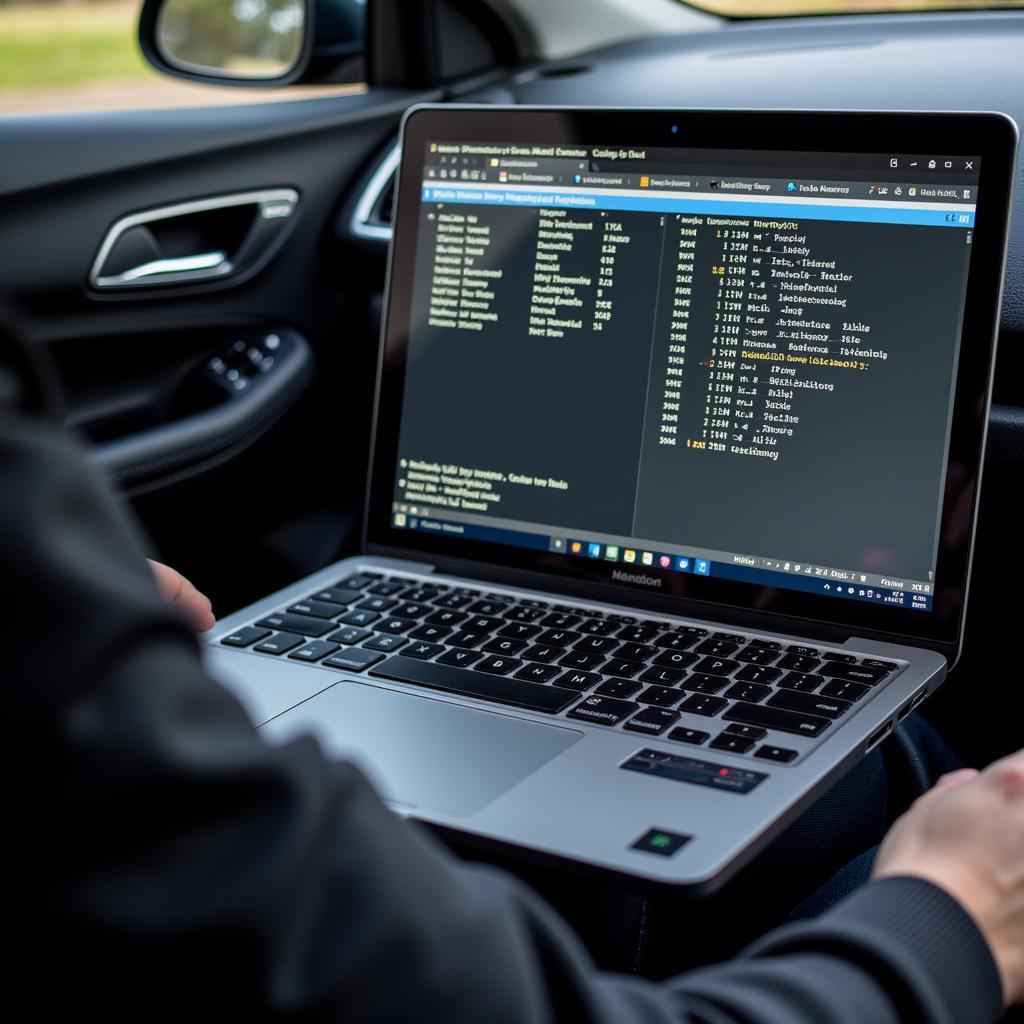A glowing check engine light can be unsettling, especially if you suspect a bad battery. Is there a link between a failing battery and that ominous light? This article delves into the relationship between a “check engine light bad battery” scenario, providing you with the knowledge to diagnose and address this potentially frustrating issue. low battery check engine light
Can a Bad Battery Cause the Check Engine Light to Come On?
Absolutely. While the check engine light often signals issues with the engine itself, a failing battery can indirectly trigger it. A low voltage can disrupt the proper functioning of various sensors and systems, leading to stored error codes that illuminate the check engine light. This connection is crucial for anyone experiencing a “check engine light bad battery” situation.
A weak battery can struggle to maintain the proper voltage needed for the car’s computer, also known as the Engine Control Unit (ECU). This can cause erratic behavior in the car’s systems and trigger the check engine light. Don’t underestimate the importance of a healthy battery for the overall electrical system.
How Can I Tell if My Check Engine Light is Due to a Bad Battery?
Several symptoms can indicate a bad battery is the culprit behind your check engine light. These include dimming headlights, slow cranking, and clicking sounds when trying to start the car. check engine light for bad battery You might also notice flickering interior lights or problems with power windows.
David Miller, a seasoned automotive electrical diagnostician, emphasizes, “Often, the most obvious signs of a failing battery are outside the check engine light itself. Look for sluggish starting, flickering lights, and electrical accessories behaving strangely.”
Another telltale sign is the recurrence of the check engine light after replacing other components. If you’ve addressed codes relating to sensors or other systems, and the light reappears, a failing battery might be the underlying issue.
What Should I Do if I Suspect My Battery is Causing the Check Engine Light?
First, test your battery. A simple voltage test with a multimeter can tell you if your battery is holding a proper charge. battery drain multimeter A reading below 12.6 volts typically indicates a problem. If the battery tests bad, replace it with a new one.
After replacing the battery, have the error codes cleared. This is essential to reset the system and ensure the check engine light stays off. If the light persists even with a new battery, further diagnosis is needed.
Will a Check Engine Light Reset After Replacing the Battery?
Sometimes, the check engine light will reset itself after replacing a faulty battery. However, it’s best practice to have the codes cleared by a professional or using a diagnostic tool. This ensures all stored errors are erased and the system starts fresh. car will not start battery good This can also prevent future misdiagnosis.
What if the Check Engine Light Remains On After Battery Replacement?
If the check engine light stays on after replacing the battery and clearing the codes, it’s a clear indicator of a deeper issue. The failing battery may have just masked another problem. In this case, a professional diagnostic scan is necessary to pinpoint the root cause. increased battery discharge mini cooper
“Don’t ignore a persistent check engine light, even after addressing battery issues,” advises Susan Carter, a certified automotive technician. “It’s crucial to identify and fix the underlying problem to prevent further damage.”
 Car Diagnostic Scan with Computer
Car Diagnostic Scan with Computer
Conclusion
A “check engine light bad battery” scenario is more common than you might think. A failing battery can trigger the check engine light by disrupting the car’s electrical system. Addressing battery issues promptly and having the codes cleared is crucial. If the light persists, further diagnosis is necessary to prevent more significant problems. Remember, a healthy battery is vital for a smoothly functioning vehicle.

